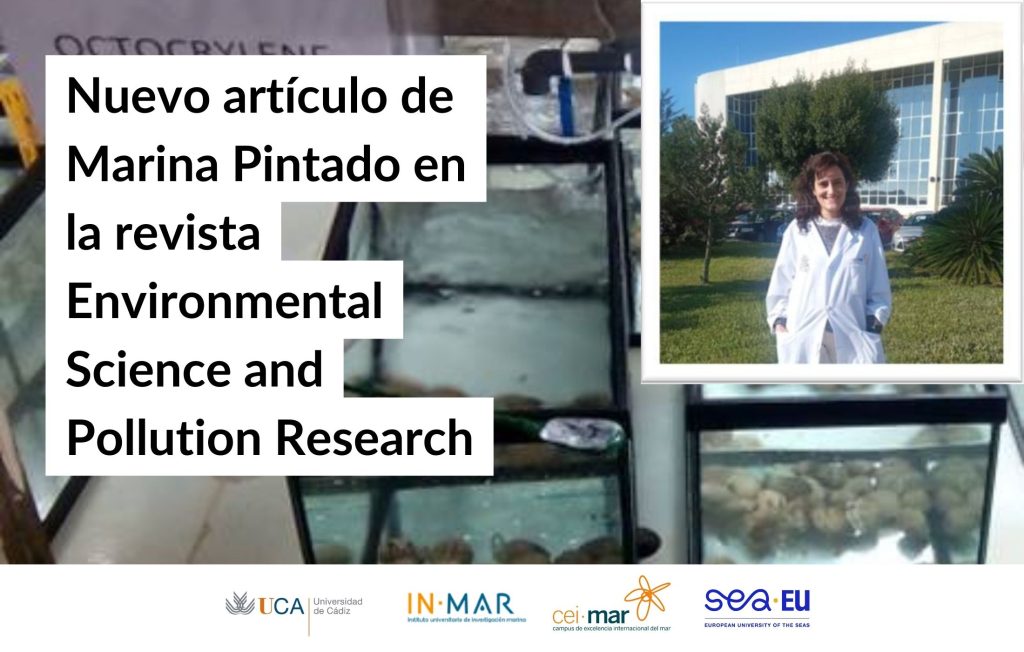Nuevo artículo de Marina Pintado en la revista Environmental Science and Pollution Research 1 March 2024
La investigadora Marina Pintado, perteneciente al Grupo de investigación: Contaminantes Regulados y Emergentes en el Medio Ambiente, dentro del Área de Química Física del INMAR, ha publicado un nuevo artículo científico titulado: “Personal care products: an emerging threat to the marine bivalve Ruditapes philippinarum.” en la revista: Environmental Science and Pollution Research.
Dicho estudio se ha llevado a cabo en colaboración con investigadores del ICMAN-CSIC.
Los objetivos del estudio fueron evaluar la acumulación y la capacidad de depuración de diferentes productos de cuidado personal (PCPs) y estudiar cualquier efecto toxicológico de los compuestos seleccionados después de un mes de exposición utilizando la especie de almeja Ruditapes philippinarum, como organismo modelo.
Los compuestos utilizados fueron: filtros solares (oxibezona y octocrileno), el producto antibacteriano (triclosán) y la fragancia sintética (OTNE), cuya presencia ha sido demostrada previamente en sistemas costeros.
Tras el análisis de las muestras, se observó una absorción progresiva y se alcanzaron concentraciones máximas en los tejidos al final de la fase de exposición. Tras el período de post-exposición al PCP, los porcentajes de eliminación fueron superiores al 65%. El factor de bioconcentración estimado osciló en concordancia con la lipofobicidad de cada sustancia. Por otra parte, no se encontraron efectos letales, aunque se observaron cambios significativos en la actividad de la etoxiresorufina O-desmetilasa, la actividad del glutatión S-transferasa, la peroxidación lipídica y el daño al ADN.
¡Enhorabuena a Marina y a todo el equipo!
Para más información del artículo esta es su referencia: DOI: 10.1007/s11356-024-32391-1 o puedes escribir un correo a Marina en: marina.pintado@uca.es


